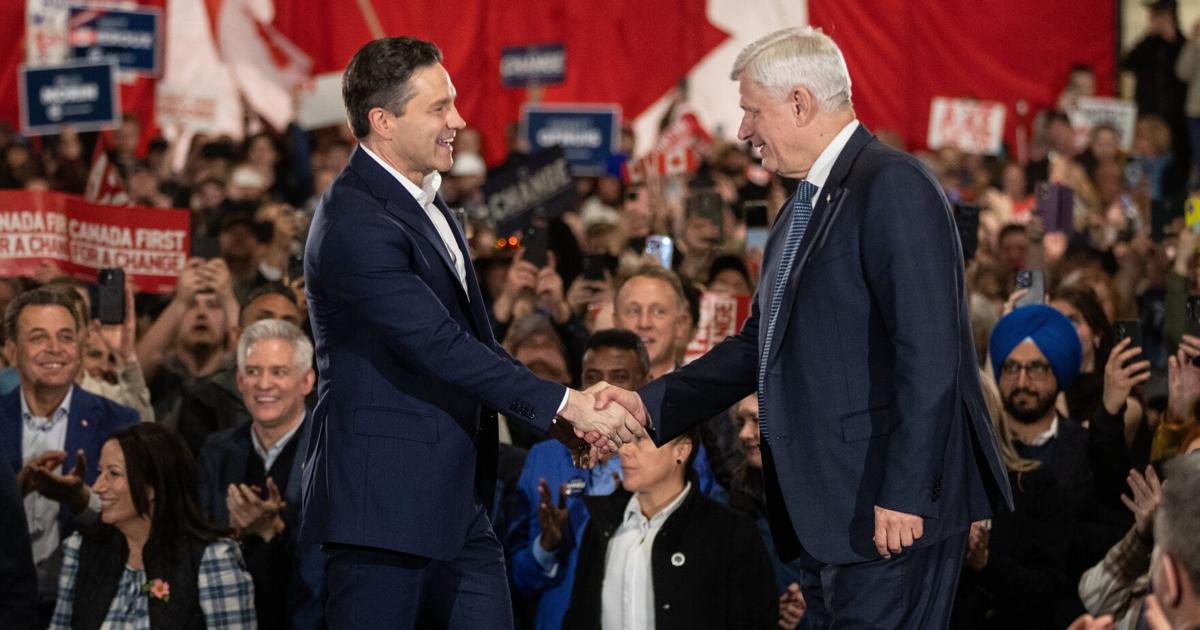Copyright thestar

In these pages and elsewhere, opinion writers have rightly criticized Conservative Leader Pierre Poilievre for attacking the leadership of the RCMP for not arresting Prime Minister Justin Trudeau. This is given as one example of how Poilievre’s overall approach to leading the party has been critiqued for straying from the conservative foundations established by John A. Macdonald and carried through John Diefenbaker and Brian Mulroney to Stephen Harper — an impressive and respected lineage that remained unbroken until the arrival of Poilievre. This argument, however, misrepresents the history of the current Conservative Party of Canada (CPC). The key rupture, in fact, occurred in 2003, when the Progressive Conservative Party of Canada (1942—2003) ceased to exist and the current CPC was born. When the old PC Party and the Canadian Alliance (the Reform Party’s successor) merged in 2003, the unfortunate result was a new Conservative Party dominated by the hard-right. It is wrong to conflate the old federal PC Party of John Diefenbaker and Brian Mulroney with the current CPC. The old PC Party represented centrist, pragmatic conservatism that included Red Tory and other moderate political traditions. The current Conservative Party, in spite of its name, is actually a right-wing reactionary and populist party dominated by former members of the Reform Party of Canada (1987—2000), such as Harper, Poilievre, Andrew Scheer and Jenni Byrne. Moderates and Red Tories who remained in the new CPC after 2003 were marginalized or compelled to support Harper and Poilievre. As prime minister from 2006 to 2015, Harper brought unprecedented levels of partisanship to Canadian politics. For example, under Harper the CPC ran attack ads against opponents before elections were called. Harper also brought a rigid ideological approach to policy making that often hindered the development of prudent policies. Harper’s GST cuts in 2006 and 2008, for instance, reduced the federal government’s long-term revenue and made it harder to meet spending commitments in a number of key areas, including defence and veterans’ services. The lost revenue also made it harder to manage Canada’s deficit and debt. Some writers claim that Harper governed with respect for Canada’s institutions. However, during the 2008—2009 parliamentary prorogation crisis, the hardball politics and cunning tactics Harper used to stay in power damaged Canada’s democratic norms and undermined the core principle that a prime minister who has lost the confidence of the House of Commons must step down. At the time, Harper’s treatment of the governor general, Michaëlle Jean, showed a lack of respect toward the Crown’s representative in Canada by forcing the governor general to intervene in a crisis of Harper’s own making. Harper’s actions during the prorogation crisis politicized the role of the Crown’s representative. Parliament is Canada’s most important political institution, but Harper did not always treat it with due respect. In 2011, the government led by Harper was found to be in contempt of Parliament for failing to share critical information about tax cuts, legislation, and procurement with the House of Commons. Harper’s frequent use of omnibus bills also showed a lack of respect for Parliament’s oversight function. It is true that calling for the punishment of political rivals, as Poilievre has done, undermines trust in our justice system and federal police. But Poilievre’s angry, grievance-based politics is derived from the right-wing populism of the Reform Party, in which Harper was a leading figure. Poilievre and his close circle cannot deliver something different to Canadians because populist politics is what they have always been about. Resentment and grievance-based politics are part of their instinctive approach to politics. The fundamental problem of the current Conservative Party is not its leadership — it is its organizational culture derived from the Reform Party and the Canadian Alliance. The Conservative Party has both a structural problem and a leadership problem. The symptoms will remain until the centre-right in Canada is able to free itself from the dominance still exerted by the Reform Party.



